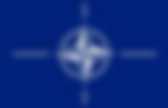

The NATO-industrial complex - NATO. “Optics!”

Hissed the NATO summit staffer. “Jesus Christ, optics!” He was right to panic. It was Sunday evening, 6 sharp, the end of the first day of the NATO summit in Chicago. A swarm of global press was gathered around the convention hall’s lone display, a slick industry-sponsored video exhibit of NATO’s ballistic missile defense system. There was just one problem. It reveals much about NATO and the media coverage of the Chicago summit that images of protest are “bad optics,” but not what came next. “If you are looking for a case study on defense industrial interests shaping NATO policy, missile defense is a good place to start,” says Ian Davis, the London-based director of NATO Watch and the organizer of a recent NATO shadow summit in Washington, D.C. Standing not far from me and watching with pride was Linda Stanfel of Sterling Strategies, a boutique public relations agency contracted by the Pentagon’s Missile Defense Agency to promote missile defense.
"The Necessity of NATO" by Anders Fogh Rasmussen. Exit from comment view mode.

Click to hide this space BRUSSELS – Many years ago, I took my children to visit the sites of the D-Day landings in Normandy. I wanted them to understand the sacrifices that others had made so that Europe and North America could enjoy the benefits of life, liberty, and the pursuit of happiness. We saw the beaches whose names echo through history – Omaha, Utah, Juno. Those beaches remain a memorial to the idea that, together, we can overcome any threat, no matter how great. The Goldilocks Arsenal - By J. Peter Scoblic. On Wednesday, May 16, just days before the leaders of NATO countries meet in Chicago to discuss the future of the military alliance, retired Gen.

James Cartwright, former head of U.S. nuclear forces, dropped his own bomb: a report arguing that the United States could reduce the number of nuclear weapons it deploys by two-thirds and the number of warheads it keeps in reserve by nearly 90 percent. Calls for lower numbers are not new, certainly not from groups dedicated to nuclear disarmament like the one Cartwright worked with -- and not even among former heads of Strategic Command. But Cartwright's report is still dramatic -- not because the quantities are so much lower than the arsenal the United States currently fields, but because they would force the United States to step across a line that separates existing nuclear doctrine from one that it has done its damnedest to avoid for decades, shifting from "counterforce" toward "countervalue. " Even so, war-fighting doctrine remained. U.S. "Why Europe Still Needs Nuclear Deterrence" by Imants Liegis , Linas Linkevičius and Janusz Onyszkiewicz.
Exit from comment view mode.

Click to hide this space RIGA/VILNIUS/WARSAW – In recent months, we have joined discussions led by former United States Senator Sam Nunn, former British Minister of Defense Lord Desmond Browne, and others to find a way to reduce nuclear weapons in Europe. Although we fully endorse the aim of working towards a world free of nuclear arms, we firmly believe that NATO must remain a nuclear alliance so long as these weapons continue to exist around the world. At NATO’s summit in Chicago this month, determining the appropriate mix of conventional, nuclear, and missile-defense capabilities to ensure a reliable level of nuclear deterrence will undoubtedly be an important item on the agenda.
"Globalizing NATO" by Anne-Marie Slaughter. Exit from comment view mode.

Click to hide this space PRINCETON – Next week, NATO’s 28 members will meet in Chicago for their annual summit. Sixty-two years after the North Atlantic Treaty was signed, binding the United States, Canada, and ten European states to consider an attack on one an attack on all, NATO is transforming itself into a twenty-first-century global security organization. The result will be a safer world. In 1949, the world was rapidly dividing into two principle political-military blocs, East and West, alongside a large “non-aligned movement.” The Alliance Gathers. This week, Chicago will host the 25th Summit of the North Atlantic Treaty Organization.

The stakes are high: the capitals of nearly all NATO member nations are wrestling with unprecedented economic challenges -- fiscal crises that have forced unwelcome austerity measures, declining defense budgets, and weak economic growth -- as well as a rapidly evolving security situation, including rogue nations with nuclear ambitions, unrest in the Middle East, instability in Afghanistan and Pakistan, and global terrorism. Noting all these challenges, critics have lamented the "decline of the West," and have started to question NATO's relevance.
It is hardly the first time they have done so. Just seven years after NATO's founding, General J. Lawton Collins, the former Chief of Staff of the U.S. Since the Geneva "summit" conference [in 1955], questions have been raised as to whether the North Atlantic Treaty Organization has outlived its usefulness. With strength and pride. Don't have an account?